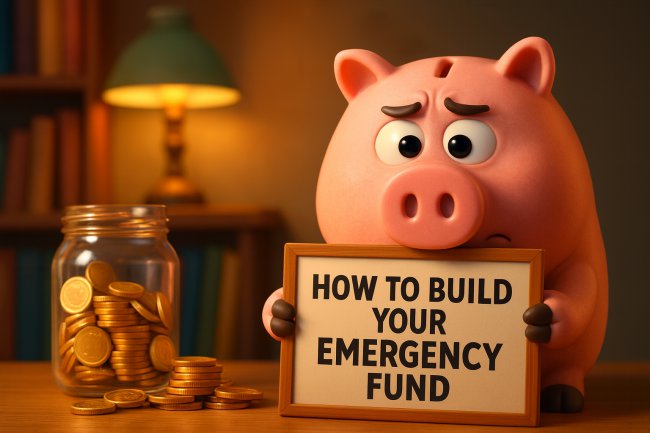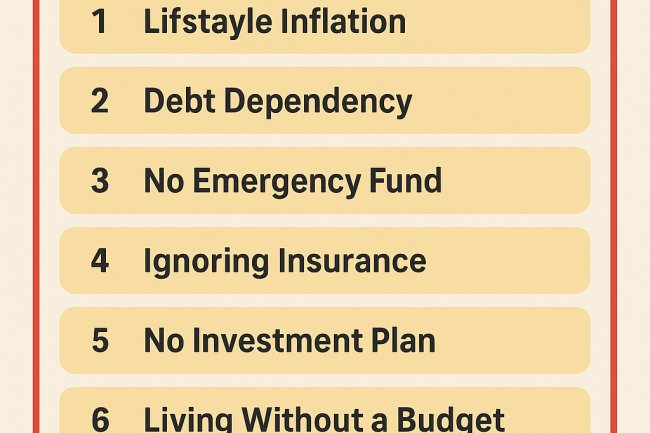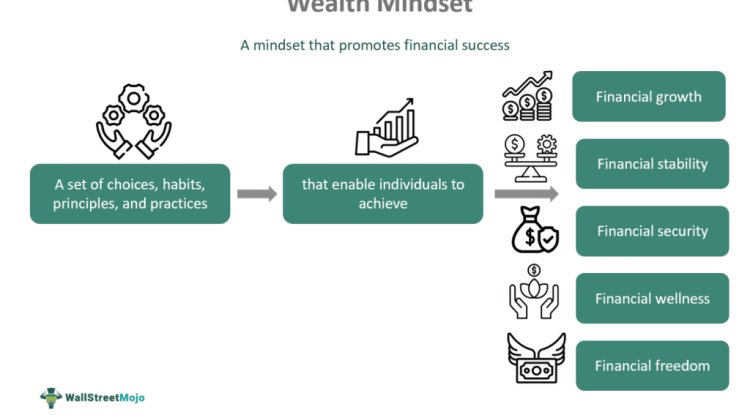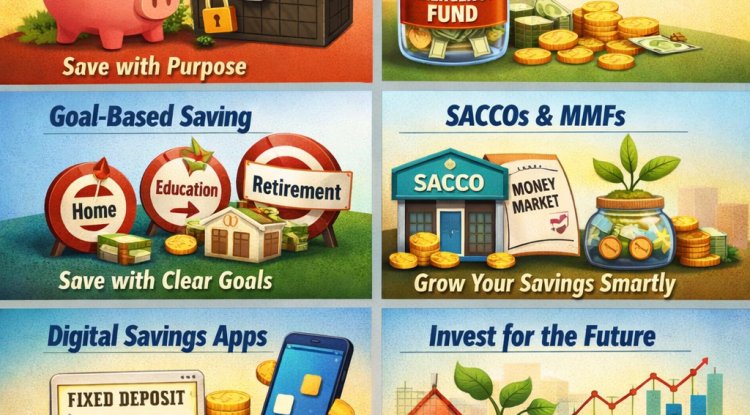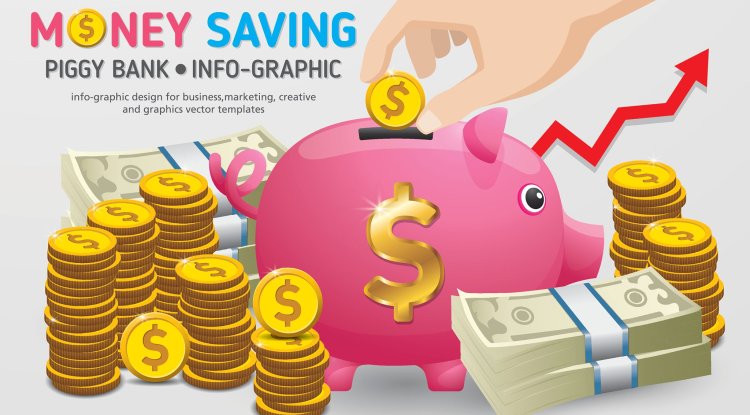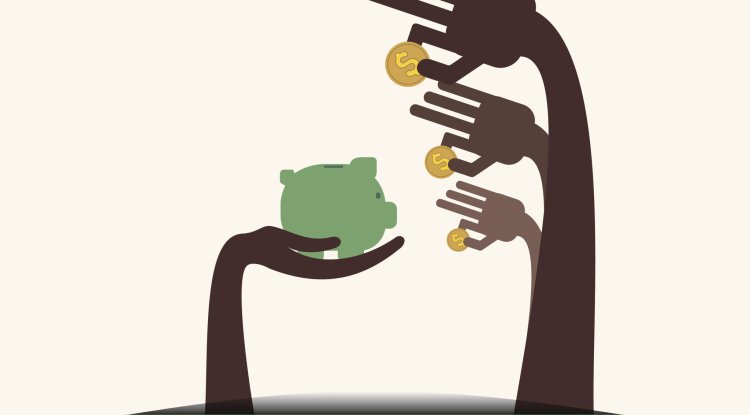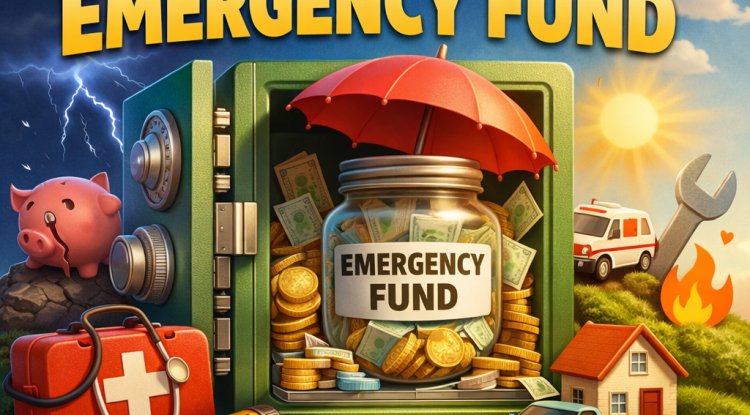Why an Emergency Fund Is a Must for Your Financial Security
Discover why building an emergency fund is vital for your financial well-being. Learn how to prepare for life’s unexpected expenses and gain peace of mind.
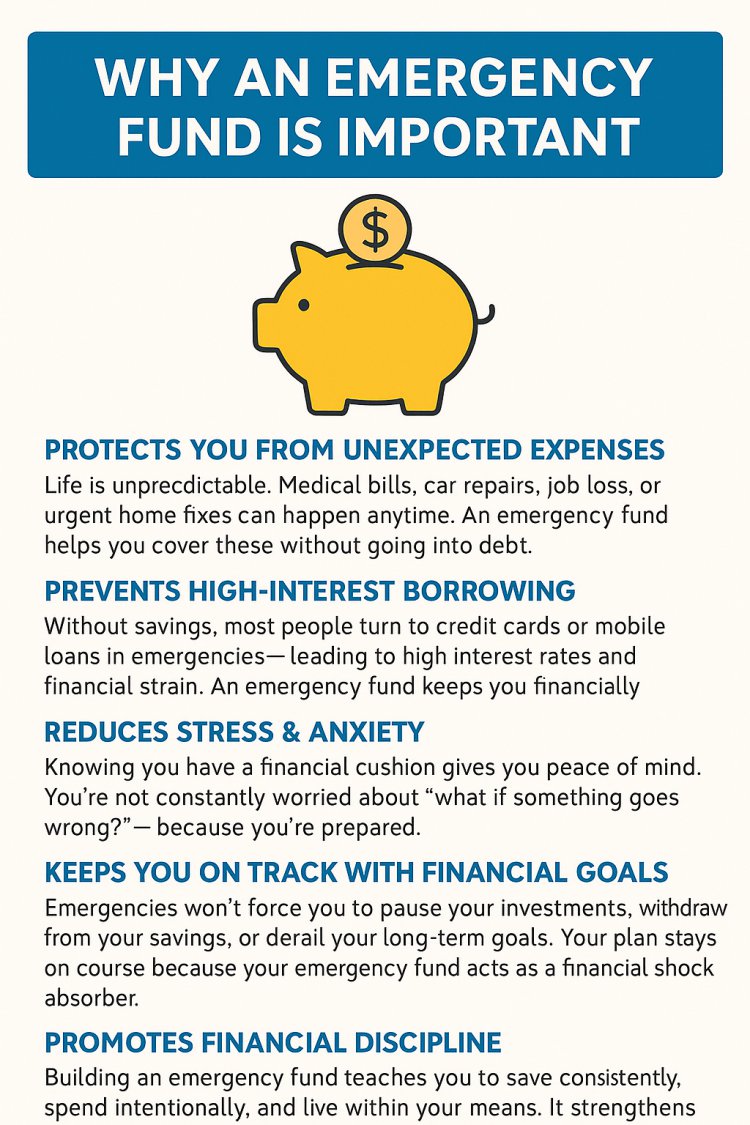
Life is full of surprises—and not all of them are pleasant.
Your car breaks down. You fall sick and can’t work for a month. Your employer announces layoffs. These situations don’t come with a warning, and without a financial buffer, they can send your entire life into chaos.
This is where the emergency fund becomes your safety net.
In a world where financial instability is common, building an emergency fund is one of the smartest financial decisions you can make. It protects you from the unexpected, keeps you out of debt, and gives you peace of mind. In this blog, we’ll explore everything you need to know about emergency funds—what they are, why they matter, how much to save, and how to build yours.
What Is an Emergency Fund?
An emergency fund is a dedicated amount of money set aside to cover unexpected expenses or financial emergencies. It is not for vacations, shopping, or investment—it’s for real emergencies like:
-
Medical bills
-
Job loss
-
Urgent home or car repairs
-
Unexpected travel due to family emergencies
-
Emergency relocation
The key is accessibility and discipline. It must be easily available but not so easy that you dip into it for casual expenses.
Top 7 Reasons Why You Need an Emergency Fund
Let’s break down exactly why an emergency fund is crucial for your financial health and future.
1. Covers Unexpected Expenses Without Debt
Emergencies happen when you least expect them. Without savings, your only options might be credit cards, mobile loans, or borrowing from friends—none of which are ideal.
With an emergency fund:
-
You avoid high-interest debt
-
You can respond quickly to crises
-
You keep your financial reputation intact
This fund becomes your first line of defense.
2. Protects Your Long-Term Financial Goals
Imagine saving up for a house deposit or working on paying off your student loans, and then suddenly facing a job loss. Without emergency savings, your goals get paused—or worse, erased.
An emergency fund acts like a financial firewall—keeping your plans secure, even in turbulent times.
3. Reduces Financial Stress and Anxiety
Financial insecurity is one of the leading causes of stress in adults. Just the thought of an unexpected bill can create anxiety if you're unprepared.
Knowing you have a cushion brings emotional relief and helps you focus on work, family, and life without constant worry.
4. Gives You the Confidence to Take Calculated Risks
Want to quit your job and start a business? Considering a career switch?
With an emergency fund, you can:
-
Take time to transition
-
Explore new income streams
-
Make bold moves without desperation
It’s the confidence fund you didn’t know you needed.
5. Prevents a Financial Domino Effect
Emergencies often lead to a chain reaction:
-
You use credit cards → incur interest
-
You fall behind on payments → affect your credit score
-
You borrow from savings → jeopardize other goals
An emergency fund stops the domino from falling in the first place.
6. Supports Others Without Compromising Yourself
If a family member needs help, your emergency fund gives you the power to offer assistance without breaking your own bank.
You can be generous and responsible.
7. Builds Financial Discipline and Habits
Building an emergency fund teaches you:
-
Consistent saving
-
Budgeting wisely
-
Differentiating between needs and wants
These habits extend to other areas of your finances and help you build wealth with stability.
How Much Should You Save?
The golden rule is to save 3 to 6 months' worth of your essential expenses.
Let’s break it down:
-
Monthly expenses = Ksh 50,000
-
Minimum emergency fund = Ksh 150,000 (3 months)
-
Ideal = Ksh 300,000 (6 months)
Start small. Even Ksh 500 per week adds up. The most important thing is to begin.
Where Should You Keep Your Emergency Fund?
Your emergency fund should be:
Accessible—You need to get to it quickly in case of a crisis.
Safe—It shouldn’t be exposed to market risks.
Separate—Keep it apart from your regular spending account.
Best options:
-
Money market accounts
-
High-yield savings accounts
-
Fixed deposits (with early withdrawal access)
Avoid putting this money into stocks, crypto, or investment schemes—safety and liquidity come first.
How to Start Building an Emergency Fund
Let’s go step by step:
1. Know Your Monthly Essentials
Calculate how much you need to cover rent, food, bills, and transportation.
2. Set a Target
Start with a mini goal: Ksh 10,000, then work your way up to Ksh 150,000 or more.
3. Open a Separate Account
Out of sight, out of temptation. Use a separate account just for emergencies.
4. Automate Your Savings
Set up automatic transfers weekly or monthly. Consistency is more important than the amount.
5. Cut Back and Redirect
Reduce non-essentials—subscriptions, dining out, impulse shopping—and funnel that into your emergency savings.
6. Boost with Extra Income
Use side hustle money, bonuses, or refunds to accelerate your fund.
7. Stay Committed
Track your progress and celebrate milestones. Don’t dip into the fund unless it’s a true emergency.
Conclusion
An emergency fund is not optional—it’s foundational.
It's your safety net when life throws you a curveball. It's your freedom from debt. It’s your gateway to financial confidence and peace of mind.
If you're serious about financial stability, wealth building, and protecting your future, then your first move is clear:
Start building your emergency fund today.
You don’t need to be rich to save. You need to start with what you have—and stay consistent.
What's Your Reaction?







